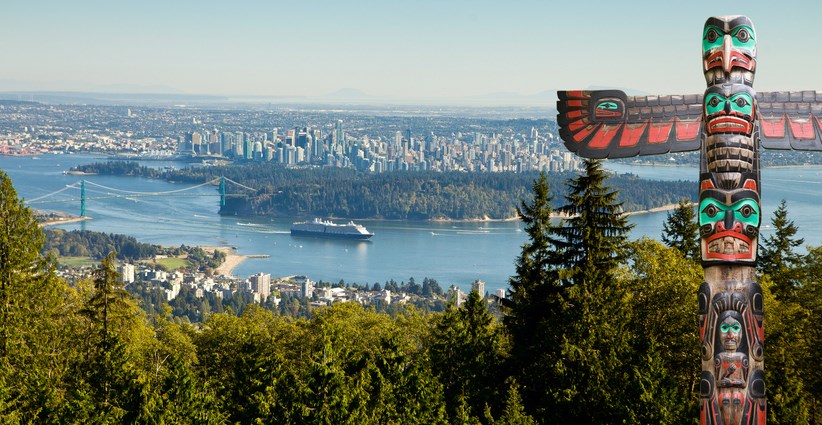A few years ago, it was not customary for elected officials to state that they were “on the traditional territory” of a specific First Nation. Now, those who forget to allocate time for this mention – such as former BC Liberal leader Andrew Wilkinson at the start of last year’s televised leaders debate – are the odd ones out.
This month, Research Co. and Glacier Media asked British Columbians about this practice. Across the province, 44% of respondents say they have attended a ceremony, lecture or public event that featured a territory acknowledgement.
The practice has not been uniformly adopted across the province. While three in five residents of northern B.C. (60%) have been at a venue where a territory acknowledgement was made, the proportion is significantly lower in other regions, such as Vancouver Island (45%), Metro Vancouver (44%), southern B.C. (40%) and the Fraser Valley (39%).
The perceptions of British Columbians on this matter are varied. A majority (54%) believe territory acknowledgements are a positive step forward towards reconciliation with Indigenous peoples. This particular statement sees little fluctuation when analyzed by gender and age.
However, there is some criticism about what this means and what can actually be accomplished. Just under half of British Columbians (49%) consider territory acknowledgements as a sincere and important practice, while practically the same proportion (50%) deems them a lip-service gesture.
The gender differences in the way residents of the province feel about these two separate statements are staggering. Women are significantly more likely to look at territory acknowledgements as sincere and important than men (53% to 46%). Conversely, a majority of male respondents (57%) consider them a lip-service gesture, compared to 42% of female respondents.
As expected, British Columbians of First Nations descent overwhelmingly regard territory acknowledgements as sincere and important (66%). The level of enthusiasm is not as high for residents of other ethnicities: 53% among those of South Asian origin, 49% among those of European descent and 47% among those of East Asian origin.
One of the statements we tested landed us closer to a true consensus. Three-in-five British Columbians (60%) think territory acknowledgements do little to address the problems facing Indigenous peoples. This includes 78% of respondents of First Nations descent, clearly showing that while the practice is appreciated, it should be accompanied by decisive action to deal with pending concerns.
In any case, there is some appetite for a change in the way we talk about the land where we currently live. Almost half of the province’s residents (48%) think territory acknowledgements should be adopted widely before ceremonies, lectures and public events held in British Columbia, while just over one in four (26%) disagree and the same proportion (26%) are undecided.
The groups that are more likely to support a full embrace of territory acknowledgements in public across the province are women (50%), people aged 18 to 34 (58%) and those who live in northern B.C. (56%). British Columbians of First Nations (62%) and South Asian descent (61%) are more likely to agree with this course of action than their counterparts whose origins are East Asian (49%) and European (45%).
The survey reveals a public that has not experienced territory acknowledgements in the same fashion. As was the case when we asked Canadians about their views on residential schools a few months ago, the way British Columbians relate to the issue of territory acknowledgements is directly related to age. Older residents are more skeptical, while the youngest adults are more welcoming.
The skepticism from British Columbians about the current state of affairs when it comes to First Nations issues is not new. In February 2019, 48% of the province’s residents considered the National Inquiry into Missing and Murdered Indigenous Women and Girls as “a failure.” There was also a sense of hope for some, with 44% expecting a renewed nation-to-nation relationship with First Nations peoples to be achieved in Canada.
Right now, a slim majority of British Columbians look at territory acknowledgements as a positive development, and just under half believe the practice should be widely adopted. However, a higher proportion of the province’s residents regard it as one of many steps towards healing and reconciliation, and certainly not the only one.
Mario Canseco is president of Research Co.
Results are based on an online study conducted from July 17 to July 19, 2021, among 800 adults in British Columbia. The data has been statistically weighted according to Canadian census figures for age, gender and region in British Columbia. The margin of error, which measures sample variability, is plus or minus 3.5 percentage points, 19 times out of 20.




